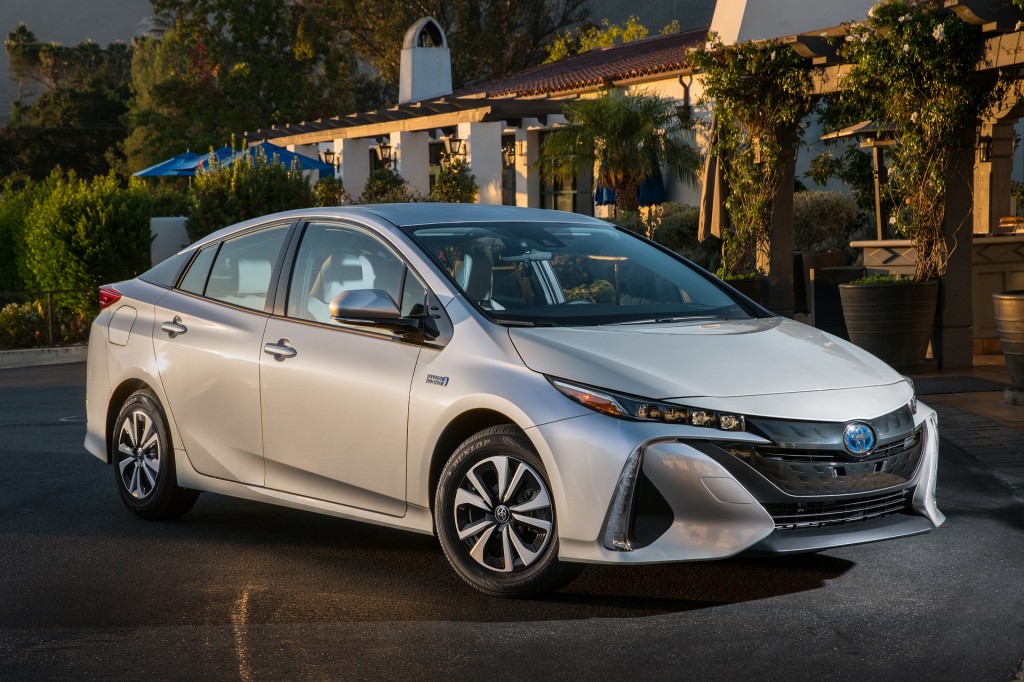With the fourth-generation Prius hybrid, Toyota focused not only on improving efficiency, but on making its halo car more appealing to a wider range of consumers.
Part of that strategy involved adopting a highly-stylized exterior that differed radically from that of previous models.
But could the new styling of the fourth-generation Prius actually be hurting its U.S. sales instead of helping?
DON'T MISS: 2016 Toyota Prius: Gas Mileage Review Of 50-MPG-Plus Hybrid (Dec 2015)
While the design is a hit Toyota's home market of Japan, it is not proving popular in the U.S., according to Bloomberg.
The current Prius design significantly departs from previous versions, with a more pronounced hood and a rear section that makes the car look a bit more like a truncated sedan.
Toyota also gave the 2017 Prius Prime plug-in hybrid model-specific styling, whereas the previous Prius Plug-In Hybrid was all but identical to the standard Liftback model.

2017 Toyota Prius
Still, the sheer volume of lines, curves, accents, and unusual shapes on both cars may be turning U.S. buyers away, some analysts believe.
Toyota sold 93,083 Prius hybrids in the U.S. in the first eight months of this year, which represented a 26-percent drop from the same period a year earlier.
In a recent survey conducted by research firm Strategic Vision, 12 percent of respondents listed exterior styling as their top complaint with the Prius—against 8 percent for the previous-generation model.
ALSO SEE: 2017 Toyota Prius Prime: first drive of new plug-in hybrid
Current owners may also be less likely to switch to the new model.
A recent Edmunds survey found that only 42 percent of current owners plan to buy another Prius, compared to 64 percent in 2005.
In contrast, Prius sales are on the rise in Japan, something Bloomberg attributes to styling that better suits the tastes of Japanese buyers.

2017 Toyota Prius Prime Premium
Styling, however, may not be the only contributing factor to a U.S. sales slump for the Prius.
Low gasoline prices and the current soaring popularity of SUVs of all sizes are the real issues for Toyota when it comes to Prius sales, according to Bill Fay—the carmaker's head of U.S. sales—in an interview with Bloomberg.
The standard Prius Liftback also faces stiffer competition from a larger field of hybrids, and now plug-in hybrids and all-electric cars as well.
MORE: Is Toyota Prius hybrid simply passe now that plug-in cars are here?
Even the Prius Prime plug-in hybrid may not seem very impressive to consumers against all-electric cars, or compared to the longer-range Chevrolet Volt, said Roland Hwang, who's the transportation program director for the National Resources Defense Council.
In the face of plug-in electric cars, the Prius is indeed no longer the technology leader that it once was, he said, on top of which those low gas prices have dampened mainstream consumer enthusiasm for green cars.
So while the current Prius styling certainly isn't for everyone, it's far from the only reason for the car's sales decline.
_______________________________________________












